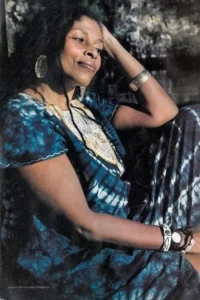Assata Shakur (born Joanne Deborah Byron, later Chesimard) has passed away at the age of 78. A towering and controversial figure in American history, Assata was both celebrated as an icon of resistance within the Black Liberation Movement and condemned by authorities for her militant activism. Her life story, marked by struggle, survival, and exile, continues to resonate deeply with generations who view her as a symbol of defiance against racial and political oppression.

Born in Queens, New York, in 1947, Assata grew up in a society marred by segregation, discrimination, and systemic inequality. She became politically active as a young woman, drawn to movements fighting for the empowerment and liberation of Black people in the United States. Assata joined the Black Panther Party, an organization founded to protect Black communities from police brutality and advocate for social programs. Later, she became involved with the Black Liberation Army (BLA), a more radical group that believed in armed resistance as a means to achieve justice and equality.
Her name became widely known following the events of May 2, 1973, on the New Jersey Turnpike. Traveling with fellow activists Sundiata Acoli and Zayd Shakur, Assata was pulled over by State Troopers James Harper and Werner Foerster. The stop quickly escalated into a gunfight, leaving Trooper Foerster and Zayd Shakur dead, while both Assata and Trooper Harper were wounded. Assata was subsequently arrested, charged, and later convicted of the murder of Trooper Foerster, despite her longstanding insistence that she did not fire the fatal shot. She was sentenced to life in prison plus 30 years and 30 days.
Assata’s conviction sparked outrage among supporters who argued that she was unjustly targeted due to her political affiliations and that her trial was marred by racism, bias, and prosecutorial misconduct. Many viewed her incarceration as part of the broader effort by the U.S. government, particularly under COINTELPRO, to suppress and dismantle Black liberation movements during the 1960s and 1970s.
In 1979, after serving six years in prison, Assata made a daring escape from Clinton Correctional Facility for Women in New Jersey with the help of allies, including her close friend and comrade Mutulu Shakur, stepfather of the late rapper Tupac Shakur, and activist Marilyn Buck. The dramatic breakout cemented her status as a revolutionary figure.
Assata fled underground before eventually arriving in Cuba, where she was granted political asylum in 1984 by Fidel Castro’s government. She lived there in exile for the remainder of her life, becoming a revered figure among activists globally and continuing to inspire movements for racial justice, women’s rights, and political freedom. While in Cuba, she authored her autobiography Assata: An Autobiography, which remains a vital text for understanding both her personal journey and the struggles of Black liberation in America.
Her passing at the age of 78 marks the end of a remarkable and polarizing life. To some, she will always be remembered as a fugitive and a symbol of militancy. To countless others, she remains a beacon of resistance, resilience, and the ongoing fight for freedom.
Even in death, Assata Shakur’s legacy endures—a reminder of the costs of struggle, the resilience of those who resist oppression, and the enduring call for justice and liberation.


Leave a Reply